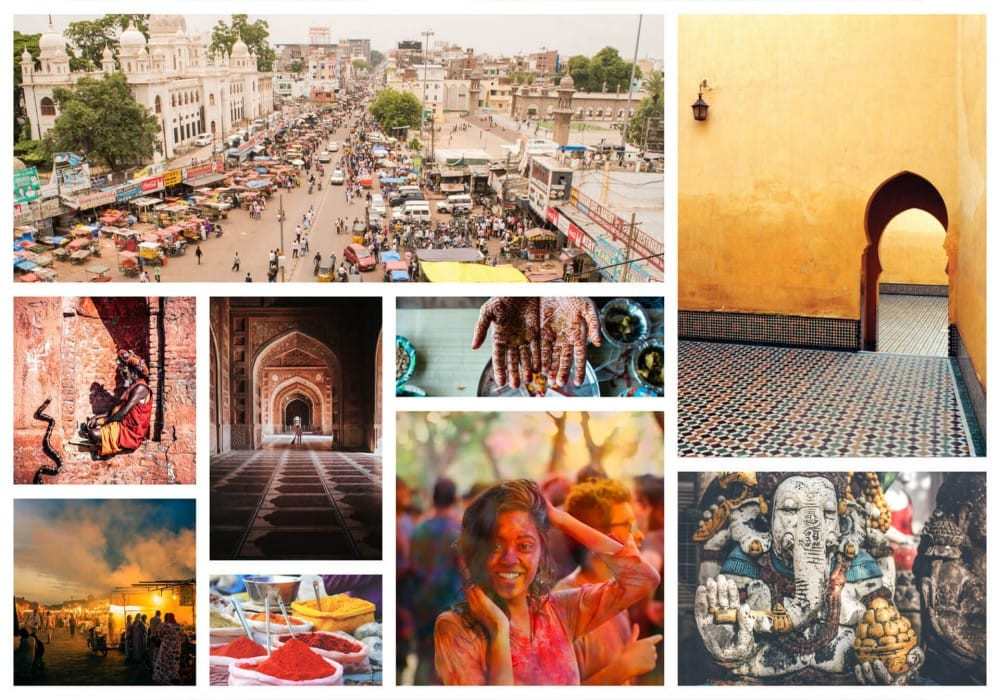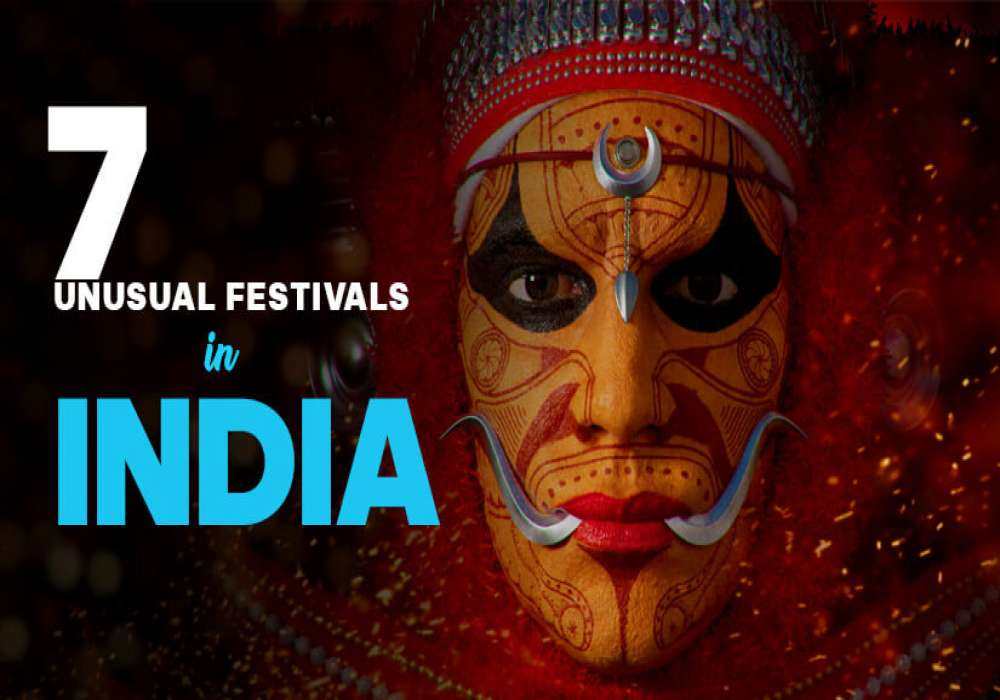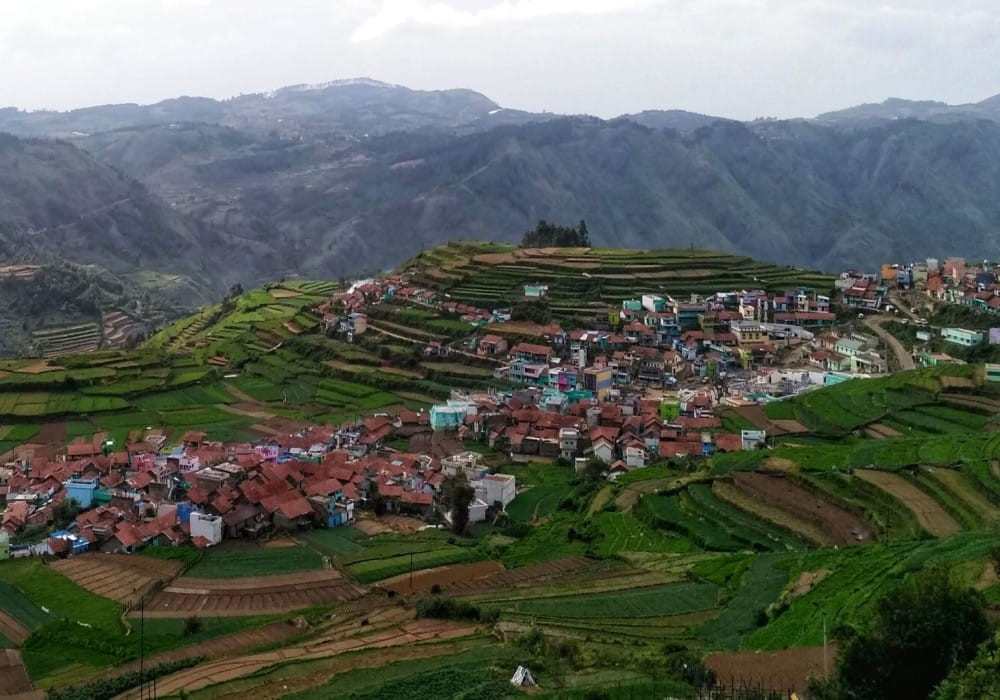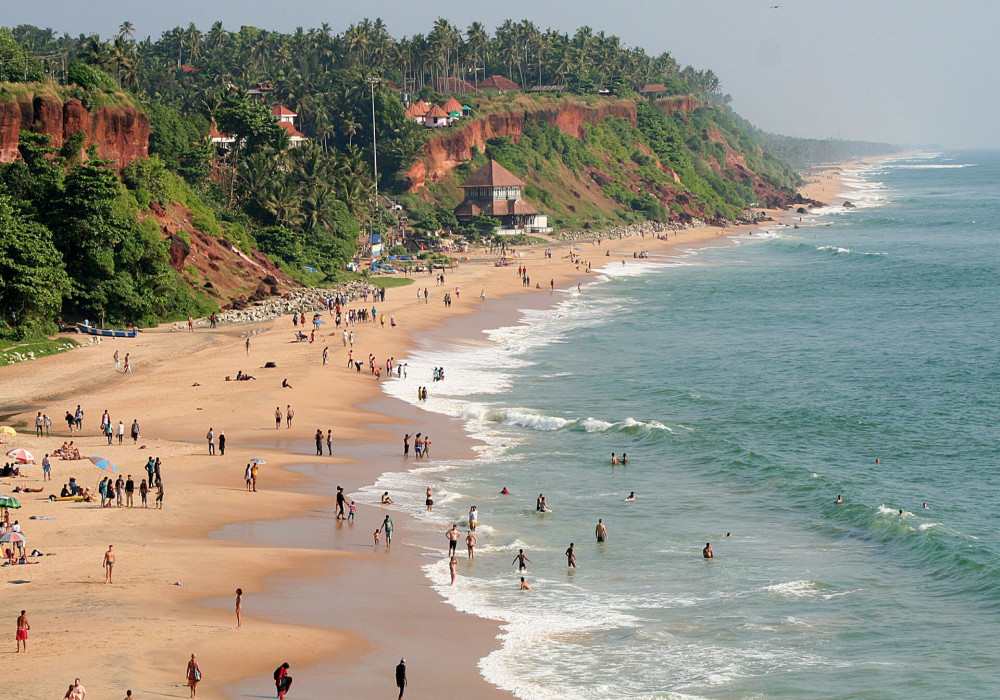
Last Updated At: 17-Nov-2023
10 Most Famous Culture of France | Unveiling the World of French Style
The culture of France is a captivating blend of historical legacy, artistic innovation, culinary excellence, and a deep appreciation for the finer aspects of life. Situated at the crossroads of Europe, France has been a pivotal influencer in shaping the continent's cultural landscape for centuries. From its iconic landmarks like the Eiffel Tower to its world-renowned art museums, from its intricate cuisines to its celebrated fashion houses, France stands as a testament to a harmonious fusion of tradition and modernity.
France's rich cultural heritage is woven with threads that trace back to its mediaeval origins, and yet it continues to evolve, embracing contemporary trends while safeguarding its unique heritage. With a reputation for intellectualism and creative exploration, France has nurtured some of history's most significant philosophers, writers, painters, and thinkers. Its impact on literature, cinema, music, and fashion extends far beyond its borders, making it a global trendsetter and a source of inspiration for countless individuals around the world.
Parisian Panache | Discovering the Urban and Rural Charms of France
While exploring France's culture, we will embark on a journey through its historical milestones, artistic achievements, culinary delights, and societal values. We will delve into the essence of joie de vivre, the French joy of life that permeates every facet of existence in this enchanting country. From the bustling streets of Paris to the serene countryside, from the haute couture runways to the quaint village markets, the culture of France invites us to immerse ourselves in its timeless allure and discover the profound impact it has had on the world's cultural tapestry.
- Historical Foundations | Tracing the Roots of French Culture
- Artistic Marvels | Masterpieces and Creativity in France
- Culinary Delights | Exploring the Richness of French Gastronomy
- Elegance in Fashion | Unveiling the World of French Style
- Language and Identity | The Significance of French as a Cultural Symbol
- Architectural Splendours | From Gothic Cathedrals to Modern Landmarks
- Melodies and Screens | Music and Cinema's Impact on French Culture
- Festivals and Traditions | Celebrating Diversity in French Societal Fabric
- Intellectual Heritage | Philosophical and Academic Contributions of France
- Regional Charms | Diverse Cultural Influences Across French Territories
1. Historical Foundations | Tracing the Roots of French Culture
France's historical legacy is a rich tapestry woven with significant moments and influential figures that have shaped both its own identity and the global course of history. From its Roman origins and mediaeval monarchy to the Renaissance's artistic flourishing, the Enlightenment's intellectual awakening, and the transformative French Revolution, France has been a crucible of ideas, revolutions, and cultural advancements.
2. Artistic Marvels | Masterpieces and Creativity in France
French arts and cultural heritage stand as a testament to its rich cultural diversity and creative prowess. From iconic paintings like the Mona Lisa housed in the Louvre to architectural wonders like the Eiffel Tower, the nation's contributions to art and creativity are globally renowned. With Paris as a hub for fashion and design and film festivals like Cannes showcasing cinematic brilliance, France's artistic legacy remains a source of inspiration and admiration worldwide.
3. Culinary Delights | Exploring the Richness of French Gastronomy
French gastronomy is considered one of the finest in the world. It is characterised by its use of fresh, seasonal ingredients, its emphasis on taste and presentation, and its long history of innovation. Some of the most famous French dishes include croissants, baguettes, escargot, steak frites, and crème brûlée. French cuisine is also known for its wine, which is produced in many regions of the country.
Also Read: best places to visit in france
4. Elegance in Fashion | Unveiling the World of French Style
Elegance in fashion unveils the captivating world of French style, which has become synonymous with sophistication and refinement. Paris, the fashion capital, has birthed legendary designers and iconic brands that set global trends. French fashion emphasises understated luxury, impeccable tailoring, and a balance between classic and contemporary elements. This cultural heritage has not only shaped clothing but also influenced art, film, and society.
5. Language and Identity | The Significance of French as a Cultural Symbol
Language and identity intersect profoundly in the significance of French as a cultural symbol. French, with its melodious cadence and historical weight, serves as a unifying thread that binds the diverse regions of France. It's more than just a means of communication; it encapsulates the essence of French culture, literature, and philosophy. As an official language of international diplomacy, French reinforces France's historical influence and global reach.
6. Architectural Splendours | From Gothic Cathedrals to Modern Landmarks
The architectural splendours of France are a testament to its rich history and cultural heritage. From the grandeur of mediaeval cathedrals like Notre Dame to the elegance of Renaissance châteaux, France's architecture reflects its evolution through the ages. The iconic Eiffel Tower and the intricate details of Haussmannian boulevards in Paris showcase the nation's innovative spirit.
Also Read: famous festival of france
7. Melodies and Screens | Music and Cinema's Impact on French Culture
Melodies and screens resonate deeply in France, underscoring the profound impact of music and cinema on its cultural fabric. French musicians, from classical composers to contemporary artists, have enriched the world with their harmonies and rhythms. Music and cinema serve as artistic conduits that reflect societal shifts, evoke emotions, and preserve narratives. This artistic influence continues to shape French culture, fostering a dynamic connection between creativity and the collective imagination of the nation.
8. Festivals and Traditions | Celebrating Diversity in French Societal Fabric
Festivals and traditions in France constitute a vibrant tapestry that celebrates the nation's rich diversity. From the grandeur of Bastille Day to the artistic spectacle of the Cannes Film Festival, these events showcase France's cultural mosaic. Regionally specific traditions, like the colourful Carnival of Nice or the grape harvest festivities in Burgundy, exemplify the unique local flavours within the broader French identity.
9. Intellectual Heritage | Philosophical and Academic Contributions of France
France's enduring philosophical and academic contributions have left an indelible mark on intellectual discourse. Thinkers like Descartes, Voltaire, and Sartre have reshaped philosophical thought and challenged conventional wisdom. French universities and institutions have been crucibles of innovation in literature, science, and social sciences, fostering critical thinking and academic excellence.
Also Read: things to do in france
10. Regional Charms | Diverse Cultural Influences Across French Territories
France's territories encompass a tapestry of diverse cultural influences that enrich its national identity. From the Celtic heritage of Brittany to the Mediterranean flavours of Provence and the Alsatian fusion of French and Germanic traditions, each region contributes a unique thread to the fabric of French culture. These diverse influences, shaped by history, geography, and interactions, have resulted in a mosaic of languages, cuisines, and
Traditional customs in France that collectively showcase the remarkable breadth of cultures within France.
So, are you ready to explore the captivating beauty of French culture with us? Life is short, and you should not be wasting any more precious time of yours just reading about the world of custom diversity, delicious cuisines and rich cultural heritage. Plan your trip with Adotrip and embark on an unforgettable journey. Adotrip is the key to your travel dreams, so come and unravel the peculiarity of this gem.
With us, nothing is far!
Book France Tour Packages
Frequently Asked Questions
Q1. How important is food to French culture and identity?
A1. Food is an integral part of French culture and identity. It is a way to connect with family and friends, express creativity, celebrate special occasions, and feel national pride. It is something that is shared by people from all walks of life, and it is deeply important to the French way of life.
Q2. What role does fine art have in French society historically?
A1. Fine art has played an important role in French society historically. It has been used to enrich the lives of the wealthy and powerful, to educate the public, to promote national identity, and to challenge the status quo. It is a vital part of French culture, and it continues to be an important force for change and innovation.
Q3. How strong is Catholic influence and heritage in France?
A3. The Catholic Church's influence on French culture and heritage is undeniable. It has shaped the language, art, architecture, holidays, food, and even the names of the French people. While the Church's influence has waned in recent years, it remains an important part of French life.
Q4. What secular values shape French attitudes toward religion?
A4. Laicité (means that the state is separate from religion), individualism, rationalism, tolerance, etc. These secular values have shaped French attitudes toward religion in a number of ways.
Q5. How large is the French diaspora worldwide?
A5. The French diaspora is quite diverse and is spread across different continents, with significant populations in North America, Europe, Africa, and other parts of the world.
Q6. How is the French language tied to national identity?
A6. The French language is tied to national identity in a number of ways. It is a symbol of France's history, culture, and influence in the world. It is also a language that is used in many different spheres, from literature and diplomacy to popular culture.
Q7. How influential are Enlightenment philosophers to culture?
A7. The Enlightenment philosophers' ideas had a profound impact on Western culture. They helped to shape the American Revolution, the French Revolution, and other political movements around the world.
Q8. How large is the French economy in the EU and globally?
A8. The French economy is the second-largest in the European Union (EU) and the seventh-largest in the world. It is the third largest in Europe, behind Germany and ahead of the United Kingdom.
Q9. How did colonialism and immigration shape French identity?
A9. Colonialism and immigration have had a profound impact on French identity. They have made France a more diverse and tolerant country, and they have also contributed to the country's culture and values.
Q10. How is Paris seen as a cultural capital worldwide?
A10. Paris is seen as a cultural capital worldwide. It is a city that is synonymous with art, fashion, literature, cinema, food, and wine. It is a city that attracts people from all over the world, and it is a city that continues to be a major centre of culture and learning.
--- Published By Adotrip
Latest Blogs

Long Weekends In India 2025 - List of Holidays

Kazakhstan Travel Guide 2025: Affordable Luxury, Visa Free E...

Think Ayodhya is Just Temples? Discover Its Hidden Artistic...

Why Azerbaijan is the Best Budget Friendly Alternative to Sw...













 Dubai
Dubai Malaysia
Malaysia USA
USA





